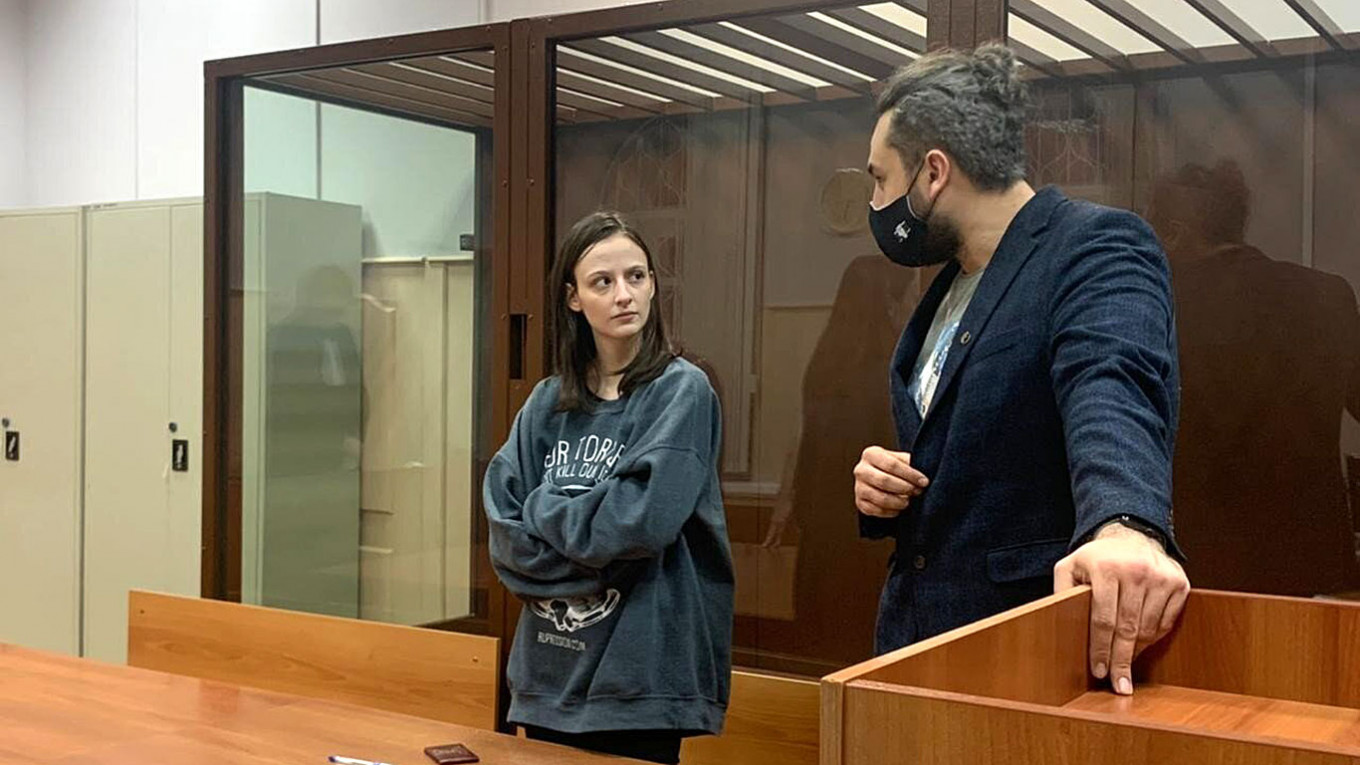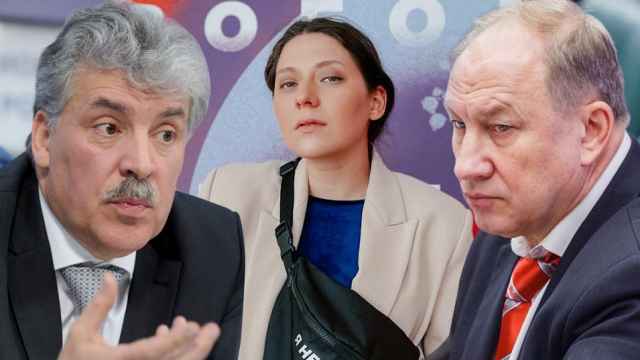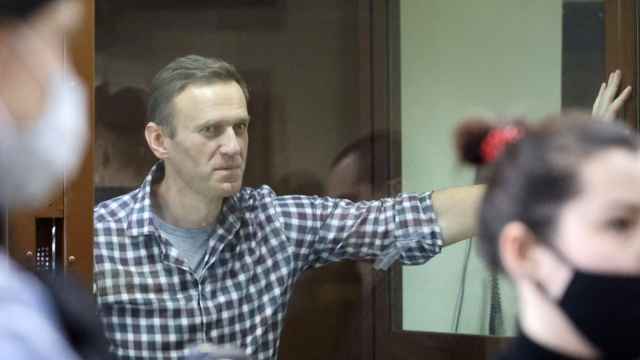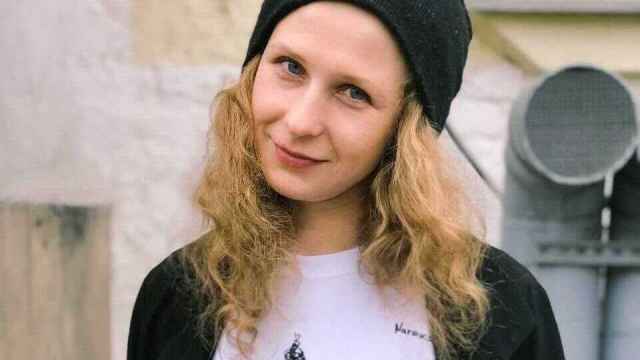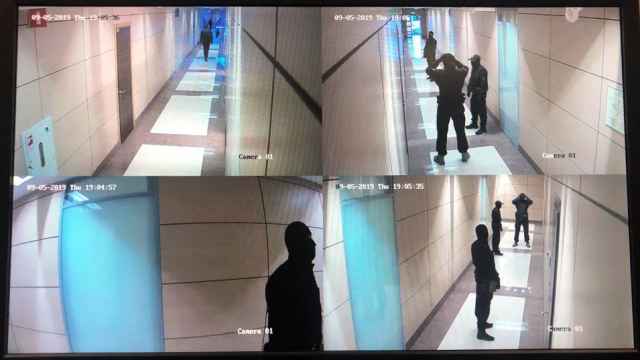Pussy Riot member and Moscow municipal deputy Lucy Shtein has been sentenced to one year of so-called “restricted freedom” for promoting a protest that called for jailed Kremlin critic Alexei Navalny’s release.
Shtein is one of 10 opposition figures accused of violating coronavirus restrictions on mass events by calling for the unauthorized protest on Jan. 23 that saw thousands take to the streets in Moscow. The Pussy Riot member, who has been under house arrest for over six months, believes the criminal charges in the “sanitary case” were politically motivated.
Moscow’s Preobrazhensky district court found Shtein guilty of “inciting violations of sanitary restrictions,” the Kommersant business daily reported Wednesday, citing the court’s press service.
The “restricted freedom” sentence bans her from leaving her residence between 10 p.m. and 6 a.m., changing her place of residence without prior notice, attending mass events and leaving Moscow without the authorities’ consent.
She will also be required to check in with criminal inspectors twice a month.
“My case is a drop in the ocean, but such drops are what make up the destruction of human rights in Russia,” she said in her final court statement.
State prosecutors had originally requested a sentence of two years of “restricted freedom.”
Earlier this month, close Navalny ally Lyubov Sobol was sentenced to 1.5 years of “restricted freedom” for the same charges, while Navalny’s brother Oleg was handed a one-year suspended sentence.
Unconfirmed media reports said Sobol fled Russia before her restrictions went into force.
Fellow Pussy Riot member and Shtein's partner Maria Alyokhina is awaiting her sentence as part of the “sanitary case.”
The charges come amid an unprecedented crackdown on Navalny’s movement, with his political and activist networks both being outlawed as “extremist” groups in June and dozens of affiliated websites being blocked.
Navalny himself is serving a 2.5-year prison sentence for breaking probation terms, a verdict that he says was politically motivated following his nerve-agent poisoning last August.
Investigators this month charged him with a new crime that could see his prison term extended by up to three more years.
A Message from The Moscow Times:
Dear readers,
We are facing unprecedented challenges. Russia's Prosecutor General's Office has designated The Moscow Times as an "undesirable" organization, criminalizing our work and putting our staff at risk of prosecution. This follows our earlier unjust labeling as a "foreign agent."
These actions are direct attempts to silence independent journalism in Russia. The authorities claim our work "discredits the decisions of the Russian leadership." We see things differently: we strive to provide accurate, unbiased reporting on Russia.
We, the journalists of The Moscow Times, refuse to be silenced. But to continue our work, we need your help.
Your support, no matter how small, makes a world of difference. If you can, please support us monthly starting from just $2. It's quick to set up, and every contribution makes a significant impact.
By supporting The Moscow Times, you're defending open, independent journalism in the face of repression. Thank you for standing with us.
Remind me later.


